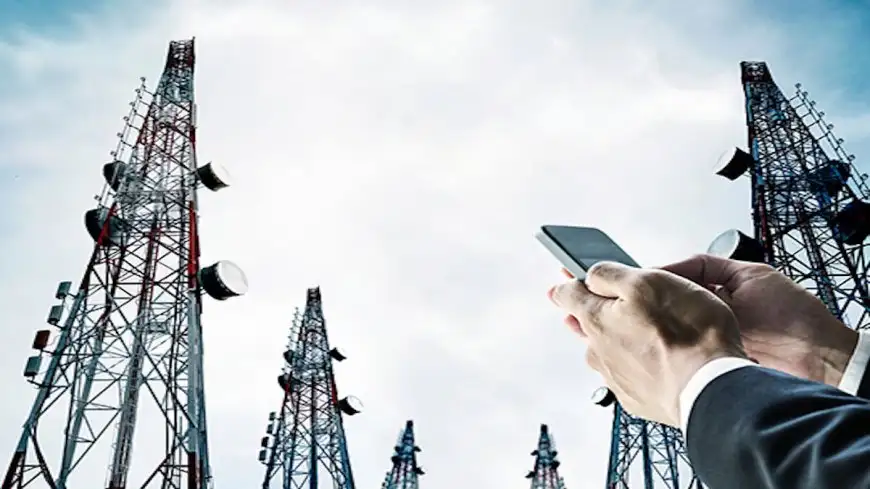Indian Telecom Operators Activate Emergency Plans Amid Border Tensions
With rising geopolitical tension between India and Pakistan, India’s top telecom providers—Reliance Jio, Airtel, Vodafone Idea (Vi), and BSNL—have begun activating emergency measures to maintain stable communication in vulnerable regions. This development follows a directive from the Disaster Management Department under the Ministry of Telecommunications, urging companies to ensure seamless connectivity, especially near border areas.

Government Directs Operators to Stay Prepared
Officials from the Ministry of Telecommunications have asked all major networks to ramp up their readiness in response to security concerns near the Line of Control (LoC) and other sensitive zones. The focus is on strengthening infrastructure to avoid network breakdowns during emergencies.
Key instructions to the telecom providers include:
- Deploying portable mobile units to critical regions.
- Improving signal coverage in remote and border districts.
- Ensuring backup power systems at mobile towers.
- Prioritizing communication access for emergency responders, defense forces, and healthcare services.
These steps are part of a broader initiative to prevent communication blackouts during potential escalations and ensure citizens can contact authorities if needed.
High Alert in Border States
States such as Jammu & Kashmir, Punjab, Rajasthan, and Gujarat are under heightened alert due to their proximity to the border. Telecom teams are working closely with local disaster response units and armed forces to ensure continuous service.
Mobile towers in border districts are undergoing emergency checks. Backup generators are being tested, and satellite communication tools are being readied to ensure an alternative line of contact in case ground-based infrastructure fails.
Technicians and support teams have been placed on standby in key areas to respond quickly to any network disruption.
Telecom Companies React Swiftly
All four providers have reaffirmed their commitment to keeping India connected, even under challenging circumstances.
Reliance Jio, India’s largest telecom provider, is reportedly deploying mobile towers on wheels (COWs) to cover areas prone to outages. These movable units are useful in rapidly restoring service if fixed infrastructure is damaged.
Airtel is focusing on network redundancy and rapid failover systems. A spokesperson said the company is ensuring that critical services can continue even if one segment of the network fails, by rerouting communication through backup routes.
Vodafone Idea (Vi) is conducting readiness drills and stress-testing its network in northern regions. The company is also coordinating with local authorities to enhance coverage in rural areas where connectivity can be inconsistent.
BSNL, the state-owned provider, plays a crucial role in serving military posts and remote villages where private networks often have limited reach. Officials say BSNL is in close contact with defense units to maintain robust communication links.
Communication as a Lifeline During Crisis
When emergencies occur—whether due to conflict, natural disasters, or internal unrest—communication becomes a vital tool for coordination and relief. It enables authorities to reach affected communities, allows people to call for help, and keeps families informed and connected.
The lessons from previous incidents, such as the 2019 India-Pakistan military standoff, have highlighted the importance of keeping telecom systems resilient. That event saw brief outages in some border areas, prompting the government to push for stronger infrastructure and rapid response capabilities.
Today’s preparedness reflects a growing understanding that in the modern age, connectivity is just as crucial as water, electricity, or transport in times of crisis.
Public Awareness Measures
Alongside the infrastructure efforts, local governments may soon issue safety advisories to communities near the border. These could include instructions to:
- Keep phones fully charged during periods of heightened alert.
- Save emergency contact numbers.
- Avoid forwarding unverified messages that could spread panic.
In some areas, public meetings and workshops are being held to educate residents on how to stay informed and act responsibly during uncertain situations.
Building a Resilient Communication Network
India’s telecom sector has seen tremendous growth over the past decade, connecting millions to digital services—from education and banking to telemedicine. This vast digital ecosystem must remain functional even in adverse conditions.
The current actions taken by Jio, Airtel, Vi, and BSNL reflect more than just operational readiness. They highlight a deep sense of responsibility toward national security and public service.
By preemptively addressing risks, reinforcing infrastructure, and training response teams, India’s telecom industry is proving it can withstand not just commercial pressures but also national crises.
Conclusion
Although the situation along the India-Pakistan border remains fluid, the swift response from telecom providers and government agencies shows a commitment to preparedness. Keeping the nation connected during times of uncertainty is a shared mission—and one that could prove crucial if tensions escalate further.
For now, citizens are urged to stay calm, follow official updates, and use communication services wisely. In these moments, clear and stable lines of contact are not just about technology—they’re about safety, trust, and unity.






